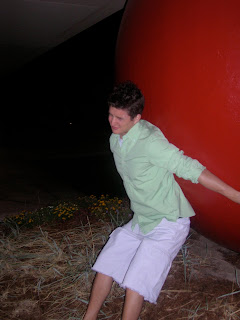
As many of my close friends and family know, this has been an important season for Trey in school. While medical school in general has its fair share of challenges, the end of the second year is especially important because all the med students have to take USMLE Step 1 or "Boards."
The USMLE Step 1 (more commonly just Step 1 or The Boards) is the first part of the United States Medical Licensing Examination. It assesses whether medical school students or graduates can apply important concepts of the sciences fundamental to the practice of medicine. US medical students typically take Step 1 at the end of the second year of medical school. Graduates of international medical schools must also take Step 1 if they want to practice in the US.[1]
Format
The exam used to be an eight-hour computer-based test taken in a single-day, composed of seven 50-question sections with a total of 350 multiple-choice questions.
Subjects
Step 1 is designed to test the knowledge learned during the basic science years of medical school. This includes anatomy, biochemistry, histology, physiology, neuroscience, psychiatry, genetics, pathology, microbiology, pharmacology, molecular biology, immunology and statistics. Epidemiology, medical ethics and questions on empathy are also emphasized. Each exam is dynamically generated for each test taker; while the general proportion of questions derived from a particular subject is the same, some test takers report that certain subjects are either emphasized or deemphasized.
Effect on Residency Matching
The USMLE score is one of many factors considered by residency programs in selecting applicants. However, at present, this test is the only standardized measure of all applicants.
Uses of test
Students in American medical schools take this test at the end of their second year of medical school, usually required for progression into the clinical third year. The test is standardized and direct comparison between medical students nationally; although, the creators of the USMLE would like that test scores were not used for this purpose. Performance on this test is also one of the selection criteria used in the NRMP match program for residencies. A passing score on this test indicates that the medical student has grasped the core scientific knowledge taught during the 'basic sciences' years.
The end.
The most important part of all of this, however, is that Trey is DONE! I'm so proud of him for all the rigorous work he put in this year. And we're both so thankful to JESUS for the blessings he has poured out over us. We move forward trusting Him, knowing that He has something perfect in store for Trey and our family at the end of the medical school journey.
No comments:
Post a Comment